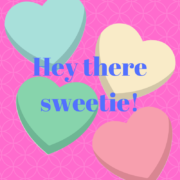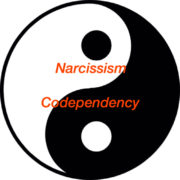Do you like cheeseburgers? Boy I do, but I also like a lot of other foods. I don’t want to eat the same thing everyday. The same idea applies when you end up with a therapist who relies on just one approach to help you. Some forms of therapy demand a sort of “workbook-stick-with-the-program” pre-packaged approach that can leave a client feeling oddly out of sync with the therapist. It feels forced. Or the person doesn’t feel like the therapist “gets it” even when they are kind and supportive. This can actually worsen your situation by making you feel as if you did something wrong. Don’t give up. There are actions you can take that will help.
I am waiting to return safely to my home in Wilmington, North Carolina. We are currently cut off by flood waters. My husband and I evacuated from Hurricane Florence and the destruction it left behind. While I wait, I am reading the book Grit (2016) by Angela Duckworth. She is a psychologist and researcher at University of Pennsylvania who studies achievement, and has a TED Talk you may wish to hear on the subject of grit. It’s been on my list for a while, and this seemed like a fairly pointed time to dive in.
Grit sounds self explanatory, but if you think you have it, you may be engaging in oversimplification. I expect many who find themselves cleaning up and rebuilding in the aftermath of the horrific destruction by Florence are going to experience either its lack, or its presence, in their lives.
It’s pretty standard knowledge that you go to therapy to change something. But changing a way of thinking or a behavior we don’t like is just not that easy, is it? And it is especially difficult to change our reactions to other’s mayhem. If it was we’d all do it and be on our merry way. Let me share three signs you need therapy.
I read a Facebook comment recently that plaintively asked “Why is it so hard for us to talk about our emotions?” In light of the recent and tragic suicides of Kate Spade and Anthony Bourdain, I thought about this question. It begged the following question. Have you ever had your emotions minimized or dismissed altogether?
I experienced this recently, and it made me feel sort of expendable, like what I was contributing really wasn’t all that important. It can make you question whether that is true, and undermine your self esteem, as well as your sense of belonging. Now I’m not depressed, but if you are depressed, this only confirms the heaviness you already feel, and the sense that you really don’t matter. Here are eight reasons why emotions have low value in our culture.
In addition to my degree in clinical social work, I have a masters degree in public health. We prevent. That’s what public health is about. In this post I want to help you see the hidden costs of poor boundaries, and prevent those costs for yourself. First you need to understand that prevention is often invisible unless you first look at the prevented costs. Here’s an example of that.
You can call me honey—if you’re my husband. What is this about? I recently shared an article from Next Avenue on the harm it does to older persons when they are called honey or sweetie. These terms contribute to ageism according to the article. Boy did I get some pushback on my stance of avoiding those words! My readers contributed great insight on the topic, but many feel it is Southern custom, and that I should just lighten up 😉
I am so fascinated by why emotions have such a low value in our culture. People are simply not aware of the power their emotions exert over their behavior. They do not investigate them. They are not curious about emotion. And Brené Brown’s research has shown that people who do investigate their emotions have learned to do so in one of three ways. How I wish they were as curious as this little boy staring at his fish!
PSA: Get some awe. Go out and get yourself to a place where you can easily feel your insignificance. A place in nature where you can look up, down and all around, and breathe in the idea that all of the anxiety, the worry, the daily grind, don’t matter. At least not in that moment.
Coming clean on the couch isn’t easy. And what do I mean by that? This is a post about self deception and how it stops you cold from achieving your best self. Self deception exists in many forms. We tell ourselves it won’t matter if we just have this extra helping of mashed potatoes or purchase this designer handbag on sale. The credit card bill is already high–what the hell. But how about self deception as a form of [false] protection?
Lately the world is abuzz with talk of narcissism. Politics aside, sometimes I see this in the therapy room. It is more subtle than you might expect. These behaviors are not as black and white as this yin/yang symbol. Indeed, this set of emotional behaviors is more like 50 shades of gray! Why? Because it is often difficult for a partner to pin down why they are the ones feeling exhausted and depressed when dealing with a narcissist. Is it Oz? The comparison of Oz as the epitome of the narcissist is used by Eleanor D. Payson in her book The Wizard of Oz And Other Narcissists. She sees the wizard from the movie The Wizard of Oz as a glowing example of narcissism, and Dorothy as the “codependent” who repeatedly and desperately tries many ways to please him in her goal of getting back home. In this classic example, both parties fit together in a yin and yang manner, perpetuating this painful dance.
PAGE RUTLEDGE, LCSW, CHt | Couples Counseling
Tel: 910-777-7243
Offices at:
5006 Randall Parkway (close to UNCW)
Wilmington, NC 28403
Free parking at office










